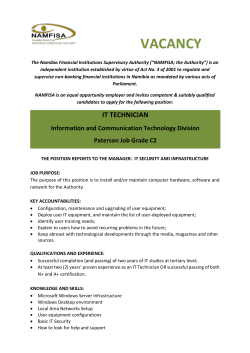
Information
The Small Grants Programme of the SERVIR-E & S Africa Project is an initiative under implementation at the Regional Centre for Mapping of Resources for Development (RCMRD) with support of United States Agency for International Development (USAID) and in partnership with National Aeronautics and Space Administration (NASA). The objective of the Small Grants Programme is to improve environmental decision-making by dissemination of Earth observation data, products, and tools to empower governmental and government-affiliated institutions to make betterinformed decisions. The anticipated outcome of these activities is to stimulate the innovative use of geospatial tools and information to translate science into sustainable policy and practice that addresses the environmental and developmental challenges posed by climate stresses. The purpose of the kick-off workshop is to orient grantees with various aspects of grant operation including USAID rules and operational provisions, monitoring and evaluation aspects of the grant programme and communication guidelines for grant activities. The meeting will also create an opportunity to build networks amongst the grantees as well as create forum towards mutual awareness as communities of practice. The winning institutions are as follows. Geo-mapping for Hay making in Climate Stressed Rangelands (Geo4HCR) by Environment Surveys, Information, Planning & Policy Systems (ESIPPS) International Ltd Resilience to Climate Change through Building Capacities in Spatial Data Infrastructure for Uptake by Selected County Governments in the Lake Victoria Region, Kenya by Jaramogi Oginga Odinga University of Science and Technology (JOOST) Development of Decision Support System for Sustainable Participatory sub-catchment Water Resources Management in the Face of Deteriorating Climatic Conditions by Jaramogi Oginga Odinga University of Science and Technology (JOOST) Train policy makers in data collection and mapping of vulnerable areas in Kampala, Uganda to carry out risk analyses to mitigate climate change risks by Fruits of Thought (FoT) Monitoring land degradation in the Central District of Botswana: A three-tier land degradation index mapping approach by Botswana University of Science & Tech (BOUST) Development of a GIS – Based Support Tool for Integrated Water Resources Management in Zambezi Catchment Area within the Zambezi Region of Namibia by Namibia Geographical Information Technologies (NGIT) Spatial Temporal Assessment of Mangrove Forest as a Strategy to Mitigate impacts of coastal Hazards: The case of Mafia Island, Tanzania by Ardhi University Allometric Equation for Biomass Estimation of 30 Indigenous trees in S&E by Addis Ababa University – Center for Environmental Science, College of Natural Science A pilot implementation of the land administration Domain Model for Kenya by Dedan Kimathi University of Technology (DUT).
© Copyright 2025
















